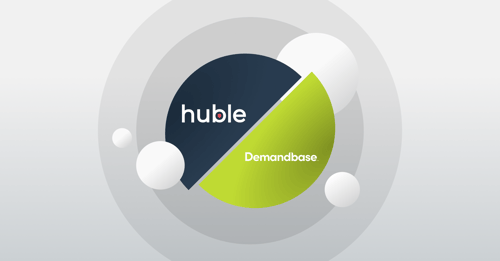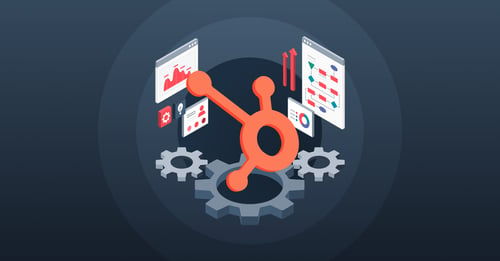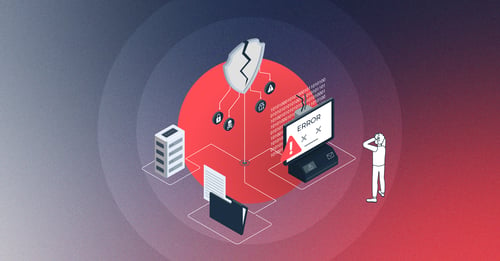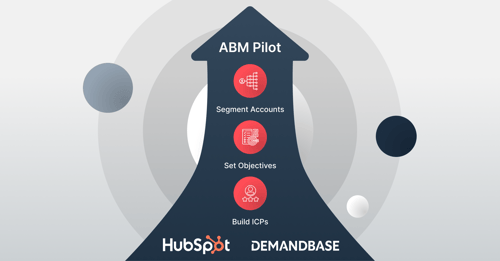In this article, we’ll explore how HubSpot supports post-M&A integration, and how Huble partners with complex organisations to execute CRM transitions that deliver fast adoption, operational clarity, and long-term ROI.
In 2024, global M&A activity rebounded to nearly $3 trillion in deal value, an 11% year-on-year increase, as companies doubled down on strategic transformation despite ongoing economic uncertainty.
But the real challenge begins after the deal is signed.
For organizations navigating structural change, integrating multiple teams, systems, and customer experiences is a complex, high-stakes undertaking. Success requires rethinking how your business engages, sells, and services at scale.
This is where a unified CRM platform like HubSpot can make the difference, not just as a tool, but as a foundation for alignment, agility, and value realization across the merged entity.
Why consolidating CRM systems matters during M&A
M&A events are more than the sum of their contracts, they’re a chance to reimagine how the business operates.
One of the most critical, yet often overlooked, aspects of integration is the CRM. Despite years of investment in legacy platforms, mergers present a rare opportunity to reassess whether existing systems are truly fit for purpose.
Consolidating CRM systems into a single, modern solution like HubSpot enables organisations to realize the full potential of a deal. By aligning go-to-market teams, customer data, and reporting under one roof, businesses can:
- Accelerate time-to-value by unifying disparate teams under a common sales and marketing process.
- Unlock cross-sell and upsell potential by giving revenue teams a 360-degree view of all customers and opportunities across business units.
- Increase operational efficiency through streamlined workflows, automation, and shared infrastructure.
- Enable smarter decisions by consolidating fragmented data into clear, actionable insights for leadership and board-level reporting.
Transitioning systems during a period of structural upheaval is never simple. It requires deep planning, expert facilitation, and a clear understanding of stakeholder concerns, particularly when teams are navigating uncertainty around roles, processes, and culture.
Why M&As are the right time for CRM migration
M&A integration is one of the few windows where change is expected, making it the ideal moment to rethink and realign core technology platforms, particularly your CRM.
Rather than attempting to bolt together legacy systems, each with their own processes, data structures, and limitations, a unified CRM like HubSpot provides a clean foundation for scalable growth.
Since M&A budgets typically include allocations for systems integration, the transition cost can be absorbed as part of broader transformation planning. More importantly, the organisation is already primed for change, making user adoption more achievable than at almost any other time.
Beyond budget alignment, there are several strategic advantages to migrating during an M&A event:
- Avoid tech debt early by moving away from outdated, inflexible systems that won’t support future needs.
- Streamline onboarding for new teams and business units with one consistent process and platform.
- Use momentum to drive adoption while teams are already adjusting to new structures, roles, and workflows.
- Negotiate better commercial terms with technology vendors due to increased scale or system consolidation.
A successful CRM migration in the context of mergers and acquisitions involves not only installing new software, but also establishing a new way of working.
Familiar, intuitive user interfaces like HubSpots mean less training and faster adoption. Higher productivity, better processes and more business growth.
Why HubSpot is the strategic CRM choice for post-merger integration
When organisations undergo a merger or acquisition, they’re not just combining teams — they’re integrating systems, workflows, data structures, and customer experiences.
Choosing the right CRM platform during this transition is a strategic decision that can either accelerate synergy or introduce long-term inefficiencies.
HubSpot stands out in post-M&A contexts by offering a single, extensible platform that is purpose-built for modern, multi-entity organisations navigating transformation at scale.
Here’s why:
- Unified platform with modular flexibility
Unlike many traditional CRMs that require costly custom development or middleware, HubSpot offers sales, marketing, service, operations, and CMS on a single codebase. This means you can scale across functions and regions without building around disparate systems, ideal for fast-moving integration timelines. - Designed for decentralised teams, governed centrally
HubSpot’s enterprise-grade governance, including business units, partitioning, SSO, permission sets, and audit logs, allows you to localise CRM access by brand, region, or team, while maintaining central visibility and compliance. You don’t need to trade off control for usability. - Faster deployment and adoption at scale
HubSpot’s intuitive interface and admin-friendly setup drastically reduce time-to-value compared to traditional enterprise platforms. For large teams undergoing change, this means less disruption, shorter onboarding cycles, and faster alignment across sales, marketing, and service. - Integration-ready for legacy and modern stacks
With a robust API, 1,000+ native integrations, and a thriving partner ecosystem, HubSpot is built to plug into your existing systems, whether that’s Salesforce remnants, SAP ERP, Workday HR, or custom-built tools. It’s not a rip-and-replace: it’s an upgrade with minimal friction. - Consistent data structure across all business entities
HubSpot enforces a standardized data model across all Hubs, making it easier to consolidate reporting, reduce duplication, and unify customer intelligence post-merger. It simplifies compliance and enhances strategic oversight, without needing a dedicated data engineering team. - Built-in reporting for real-time, board-level visibility
Instead of relying on costly BI tools or external analysts, HubSpot’s native reporting and dashboarding capabilities give leadership immediate insight into performance across regions, business lines, and deal stages, all with a single login. - Low technical overhead, high commercial agility
HubSpot’s no-code/low-code foundation means you don’t need a fleet of developers to maintain or evolve your CRM. This agility is crucial in M&A situations, where priorities shift quickly and commercial teams need the flexibility to adapt fast.
While HubSpot offers the architecture and flexibility needed for post-M&A success, unlocking its full potential in a complex integration environment requires deep expertise, strategic planning, and hands-on execution, which is where a specialised partner like Huble comes in.
Huble’s expertise in CRM migrations for M&A
At Huble, we understand that technology is only one piece of the M&A puzzle.
Successful CRM migrations during mergers and acquisitions hinge on aligning people, processes, and platforms, often across multiple geographies, cultures, and legacy systems.
We’ve worked with complex organisations navigating rapid growth, restructuring, and integration, supporting not just the technical move to HubSpot, but the deeper organisational shift that makes it stick.
Our M&A migration services include:
- Process discovery & redesign: Aligning newly merged teams with unified sales, marketing, and service processes before technology decisions are made.
- Technology stack rationalisation: Auditing existing systems across entities and identifying the most effective path to consolidation.
- HubSpot architecture design: Building scalable, custom-configured CRM environments that accommodate multi-entity operations.
- Change management & adoption: Rolling out the system with targeted enablement, communication plans, and long-term support to ensure adoption across all levels.
- Data strategy & transformation: Cleaning, mapping, and migrating data from multiple systems into a single, structured HubSpot instance, including deduplication and governance controls.
From early-stage due diligence through to post-merger integration, our team has helped organisations navigate the critical intersection of business transformation and technology enablement.
Mergers and acquisitions with HubSpot
Every merger or acquisition presents its own set of operational challenges: from reconciling duplicate systems to unifying global teams under a common customer strategy.
Here's how four organisations navigated CRM consolidation post-acquisition with Huble and HubSpot at the centre.
1. Financial Fraud Detection Software Provider
Following the acquisition of a business unit, the parent company needed to migrate CRM data without disrupting the original entity’s operations. Over 10,000 companies and 52,000 contacts were moved from Salesforce into a newly architected HubSpot environment.
Due to complex user permissions, the migration was performed manually to avoid system conflicts. Post-migration, a custom sales process with approval flows was implemented, and Marketo was fully replaced with HubSpot Marketing Hub, streamlining both pipeline visibility and campaign execution.
2. Global Commercial Real Estate Firm
With a footprint built through multiple acquisitions, this company required a CRM capable of unifying regional operations and customer experiences. Huble consolidated systems from Salesforce, Microsoft Dynamics, and industry-specific platforms into a single HubSpot instance. Global processes were harmonised to enable collaboration across markets, with ongoing change management and implementation support delivered to internal teams worldwide.
3. International HR & Workforce Solutions Group
Operating across EMEA, NAM, and APAC, this organisation had accumulated a patchwork of under-utilised CRMs through acquisition. Huble re-architected their CRM strategy, aligning all teams to a global B2B sales process. Data from Dynamics and Salesforce was transformed and centralized in HubSpot, enabling consistent reporting and scalable team onboarding. A long-term change enablement program was rolled out to ensure adoption and operational consistency across regions.
4. Global Education & Exchange Program Provider
After acquiring a division using HubSpot, this organisation’s CTO led a shift away from fragmented custom systems and InforCRM. The company adopted HubSpot as its core CRM, with a tailored architecture to support multiple brands and business units. Eloqua was replaced with Marketing Hub, and a roadmap was defined to migrate all subsidiaries into a unified HubSpot ecosystem — starting in 2023 and continuing through today.
These examples demonstrate the breadth and depth of challenges that organisations face during M&A, and how HubSpot, properly configured and embedded, can serve as the foundation for future growth.
Turning M&A disruption into operational advantage
Mergers and acquisitions are more than financial transactions, they’re inflection points that demand clarity, coordination, and confident execution. One of the most powerful levers in that transition is your CRM.
Migrating to a unified, scalable platform like HubSpot during M&A enables more than just system consolidation. It lays the foundation for shared processes, better data, stronger collaboration, and faster value realisation across the newly formed organisation.
At Huble, we’ve partnered with companies navigating complex integrations, across industries, regions, and maturity levels, to turn CRM migration into a strategic advantage. Whether you’re still evaluating systems or already mid-transition, our team can help you align your people, process, and platforms at every step.
Need to simplify complexity in your M&A integration? Get in touch with our team to explore how Huble can help you design, implement, and embed HubSpot as the central nervous system of your post-merger operation.












